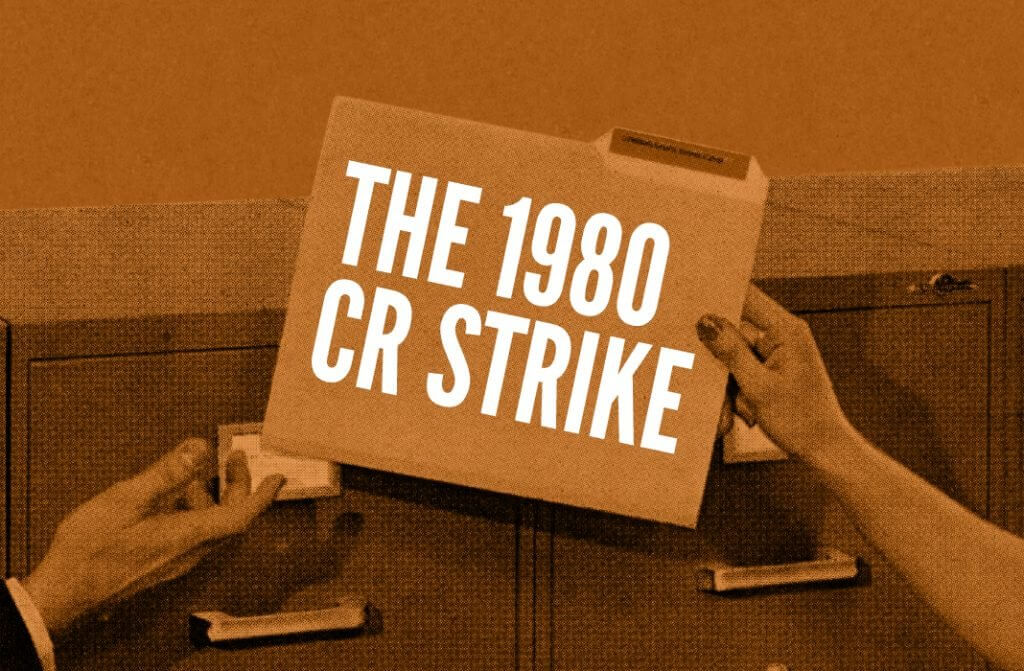The 1980 CR Strike
Today, April 24, is Administrative Professionals Day. As a union that represents a great number of administrative professionals, we obviously want to take this opportunity to recognize the invaluable work they accomplish every day.
Indeed, administrative professionals have shaped our union; their 1980 strike forever changed PSAC’s public image – as well as its own self-image.
It was the strike that no one expected. On September 20, 1980, frustrated by how negotiations were going, 10,000 clerical and regulatory workers walked off the job – nine days before being in a legal strike position.
They caught everyone off-guard.
At the time, women made up 76% of the CR bargaining; 57% were under the age of 35. Their annual salary was $12,815 (about $38,000 a year in today’s dollars). By the time the clerks took to the streets, Canadians were grappling with a worsening recession that saw interest rates rise to 18.5%.
The Public Service Alliance of Canada “used to be one of the country’s least militant unions”, wrote the National Post. Until this walk-out, strikes by PSAC components had historically been a rare event.
“This is the first time clerical workers have [gone on strike].”
The clerks’ strike also spurred solidarity strikes: hundreds of federal workers in other occupations didn’t report to work during the strike. This led the Public Service Staff Relations Board to issue a ruling: public servants who were not in a legal strike positions were not allowed to strike and would be subject to disciplinary action.
By October 2, almost 20,000 CRs and other public service employees marched through downtown Ottawa. The next day, Conservative leader Joe Clark was quoted as saying that the government was treating strikers’ unfairly.
“On the evidence, the present government’s negotiations with the clerical workers have failed the test of fairness,” said Clark.
Clark maintained the clerical workers “have a legitimate salary grievance,” noting their salaries have lagged badly behind those of comparable private-sector employees.
Ottawa Citizen, October 3, 1980
The strike put pressure on the government to reach a deal. A tentative agreement was finally reached on October 8, after a thirty-hour bargaining session. The deal worked out to a 24.8% increase over two years. It also included substantial gains when it came to family care, including paid maternity leave for the two-week period not covered by EI. The deal was ratified days later.
The 1980 clerks’ strike mobilized a whole new generation of union leaders, including former PSAC President Nycole Turmel, who first became active in her union when she saw CRs being treated unfairly.
“Women workers were being told by our union not to take strike action against an unfair employer. The male-dominated leadership at the time was out of touch with the reality faced by CRs in our workplaces. We were outraged by the way the union was treating us, but we were even more outraged at the employer.”
“We took them both on, and we became leaders overnight.”
The CR strike is an important part of our legacy. We simply wouldn’t be the union we are today without the fearlessness, boldness and determination of the clerks who took to the streets and dared speak truth to power.
